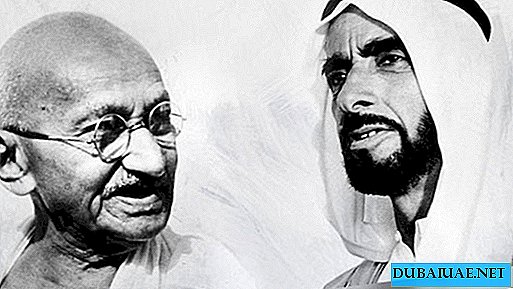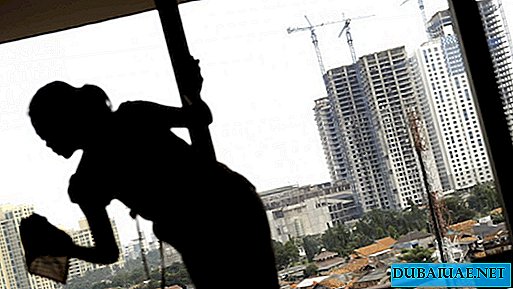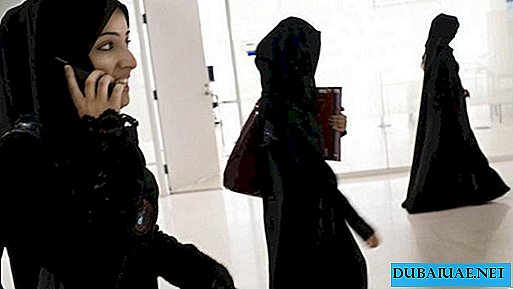"WHEN THE MONTH OF RAMADAN IS COMING, CELESTIAL GATES OPEN,
THE GATES OF HELL ARE CLOSING, AND THE SHAITANES ARE POSED BY THE SCREWS "
(Narrated by Al-Bukhari)
In mid-October, a special committee of Islamic scholars will announce the onset of Ramadan, the most important and most blessed month for all Muslims. It is at that moment, when a nascent crescent moon appears in the sky after sunset, millions of Islamic followers all over the world should for a whole month renounce the blessings of the earth in favor of serving Allah. Anastasia Zorina talks about the great Muslim post.
What is Ramadan?
 RAMADAN is the name of the ninth month of the lunar calendar. He is considered the best, blessed month, marked by the Most High special purpose. Muslims believe that this month the Prophet Muhammad was in seclusion in the cave of Hira, near the Mecca, where verses of the Holy Quran were sent to him through the angel of Gabriel. Due to the fact that the Islamic calendar is lunar, the beginning and end of the month of Ramadan is shifted every year. Mandatory for every Muslim at this time is fasting.
RAMADAN is the name of the ninth month of the lunar calendar. He is considered the best, blessed month, marked by the Most High special purpose. Muslims believe that this month the Prophet Muhammad was in seclusion in the cave of Hira, near the Mecca, where verses of the Holy Quran were sent to him through the angel of Gabriel. Due to the fact that the Islamic calendar is lunar, the beginning and end of the month of Ramadan is shifted every year. Mandatory for every Muslim at this time is fasting.
What is the fasting month of Ramadan and how is it going?
The basic requirements of the Islamic fasting relate not only to the obligatory refusal of food, drink and love pleasures from dawn to sunset, but also to the complete devotion to serving the Almighty. In Ramadan, Muslims are instructed to pray earnestly, to do good deeds, to discipline in the soul and in life, to give alms and read the Koran as much as possible. Anything that can damage the course of fasting should be ruled out, because in its original meaning, fasting is an absolute abstinence from everything that might violate its holiness. Therefore, in Arabic, the post is called "soum", which means "abstinence."
Of public affairs that are not related to the service of Allah, all kinds of amusements are forbidden, including music, cheeky behavior, loud conversations and everything that can distract a person from thinking about the essence of his existence on Earth.
Fasting, as mentioned above, begins at sunrise and ends at sunset, which is reported to Muslims by muezzins from minarets. It must be observed by all the followers of Islam. True, there are a number of exceptions.
Ramadan freed from fasting per month
- people with mental disabilities who are not aware of their actions and thoughts;
- children under 7 years old;
- seriously ill and people on the way;
- pregnant and lactating women, as well as all girls and women during menstruation.
- Old people and patients with severe chronic diseases are also released from fasting, but they are obliged to feed one poor person for every missed day.
- Interestingly, patients and travelers are not allowed to fast if it threatens their health.
Even the slightest violation of the post, outside the exceptional situations provided for in Islam, interrupts its course and renders it invalid. Every missed day, the Muslim is obliged to reimburse or redeem, depending on the reason for the interruption of the fast. He will either have to feed 60 beggars with a good dinner, or fast for six days for every missed day, and sometimes for two months in a row.
What is the spiritual meaning of fasting?
 Observing spiritual and bodily fasting in the month of Ramadan is one of the five pillars of Islam precisely because of its extremely positive effect on the human soul. many Muslims who have strayed from the path of Islam most often return to the canons of faith precisely during Ramadan.
Observing spiritual and bodily fasting in the month of Ramadan is one of the five pillars of Islam precisely because of its extremely positive effect on the human soul. many Muslims who have strayed from the path of Islam most often return to the canons of faith precisely during Ramadan.
The very intention to fast in accordance with the requirements of Islam, all the more, taken deeply in the heart, is mandatory and without it, fasting loses its meaning. For it is said in the Qur'an: “Verily, deeds (are evaluated) only by intention and, truly, each person (will get) only what he intended (to gain) (Hadith Al-Navaviya).”
Ramadan is the best time to understand the inner essence of man, because according to Islam, everything evil that prevails in the mind during the holy month does not come from dark forces, but from the person’s personality itself. Ritual purity - Tahara - is mandatory during fasting. It is understood not only as external purity, but, first of all, as internal purity - liberation from all thoughts and actions that defile a person.
That is why Muslims await Ramadan with such reverence: this is a month of spiritual development when they can take the true path. The fasting of a Muslim that neither eats, nor drinks, nor smokes during daylight hours, but whose deeds and thoughts are impure and not charitable, is considered invalid because "Allah does not need to abstain from food and drink of one who has not left a lie."
In Islam, fasting is considered the time of curbing human passions - nafs - generated by the animal principle, when a believer, by force of will, is cleansed of everything that is not pleasing to Allah, and therefore to himself. During fasting, Muslims approach prayers more responsibly than in ordinary months, be sure to read the Qur'an (it is believed that if a person reads the entire Book during Ramadan, he will earn great mercy from Allah), perform good deeds, and give out voluntary and obligatory alms.
A complete rejection of simple human needs, even in the hottest and most debilitating days, is intended to show that everything was sent down by the Almighty and enables Muslims to demonstrate the power of faith, for everything earthly does not matter before the will of Allah. The Qur'an says: "Eat and drink until you can tell the white thread from the black thread until dawn, then fast again until night." (Surah “The Cow”, verse 187). If a Muslim succumbs, for example, to the desire to drink water when he is tormented by thirst, then he commits unacceptable, because he refuses the prescribed. Fasting in Ramadan is one of the five pillars of Islam, so important that Muslims believe that those who did not have time to fill in the missed days of fasting should be compensated by their guardian or descendants, for they are not paid back to Allah.
How and when does a conversation happen?
 Daily conversation - Iftar - occurs after sunset. Just at this time, all restaurants and cafes open, tables near mosques and Bedouin tents right in the streets and in parks, in houses turn on the lights and gather large families.
Daily conversation - Iftar - occurs after sunset. Just at this time, all restaurants and cafes open, tables near mosques and Bedouin tents right in the streets and in parks, in houses turn on the lights and gather large families.
Muslims are instructed to make conversation modestly and restrainedly - with a few dates and milk. Then a compulsory prayer is provided, followed by a full meal. Conversation also has a deep spiritual meaning: a Muslim fasting all day is not allowed to rush on food and eat everything. It is in restraint that the strength of spirit is checked.
It is believed that to feed several Muslims in Iftar is a charitable cause for which sins are forgiven, therefore all Muslims try to feed as many people as possible during Ramadan. That is why tables in mosques are full of various dishes - Muslim women who cook food at home send part of it to the mosque, where poor people are waiting for their Iftar.
What is charity in Ramadan?
It is considered mandatory to share daily bread in Islam: even if a Muslim has shared with a nearby date, this will be the key to the forgiveness of his sins. Any charity in Ramadan cleanses a Muslim of useless deeds, profanity, empty talk and other small, but not pleasing to Allah affairs, from which he could not resist during the fast.
All Muslims should generously give out voluntary donations - Sadak - and give obligatory alms - Zakat. Sadaka is usually given not by money, but by any good deed that a believer performs in the name of Allah, not counting on a reward.
The return of Zakat is one of the five pillars of Islam - therefore, financially dependent Muslims (children, weak) must pay it. close relatives do it for them. even the poorest Muslims are obliged to give part of their money for alms, since the ability to share everything that you have in Islam is mandatory.
Every Muslim must, before the end of Ramadan, make a small contribution - Zakat-ul-fitr - that helps the poor Muslims so that they can celebrate the end of Ramadan on an equal footing.
What are the main events of Ramadan?
 Every day of Ramadan is filled with deep meaning. However, the last ten days of the month are considered the most sacred. At this time, Muslims pray harder, discipline themselves more internally and externally. many of them go to the mosque on the eve to spend the last decade there without retreating in retreat and prayer.
Every day of Ramadan is filled with deep meaning. However, the last ten days of the month are considered the most sacred. At this time, Muslims pray harder, discipline themselves more internally and externally. many of them go to the mosque on the eve to spend the last decade there without retreating in retreat and prayer.
On one of the nights of the last decade, Muslims celebrate Leilat Al-Qadr, the night of predestination, which is considered the best and most sacred of all nights. All actions associated with prayer, recitation of the Qur'an and praise of the Almighty on this night cost thousands of nights spent in the service of Allah. On the first day of the next month of Shavval, Muslims celebrate a great holiday - Eid Al-Fitr - the festival of the end of Ramadan. It begins from the moment a young month appears in the sky, which is visible from the earth.
After Ida’s announcement, the measured rhythm of life gives way to a pleasant bustle of preparation for the holiday: they close to all institutions, public and private, Muslims go to the markets and shops with their whole families, buy large quantities of food, fruits and sweets, put on new clothes specially made or bought even before the beginning of Ramadan, they decorate houses, give alms and celebrate wholeheartedly. Something similar to our new year and preparations for it is happening, only without Eid you feel such a unity of people with each other that it becomes warm and cozy.
It is believed that every Ramadan Muslim is given an example of how and with what a righteous follower of Islam on Earth should live. Therefore, after the end of fasting, they need to keep in their hearts everything that they have learned and that have known, and for the remaining 11 months to serve Allah with all their heart and full of heart.
What should you remember first of all?
The main thing can be expressed in the words of Confucius - "To control yourself so as to respect others, as yourself ...". Remember that the vast majority of people who will surround you in Ramadan are fasting. If for us the religious component of life is something detached or ostentatious, then for Muslims it is sacred. Be respectful of this. Be kind to others and restrained, for this is one of the beautiful commandments of Ramadan.
How should I dress and behave in Ramadan?
The UAE is a Muslim country, so at any time you need to observe restraint in clothing and behavior. According to Sharia norms, a person should behave in public with restraint, quietness, without disturbing the peace of others and without invading personal space, without insulting anyone with a word, deed, or appearance.
If in Dubai tourists are usually allowed to walk in short skirts, with open breasts and cuddle in public, then this is only out of a desire to create foreigners greater comfort. However, remember that such things can lead to a fine. You can’t talk loudly, actively gesticulate and attract attention to yourself in other ways. In Ramadan, the rules of equipment and behavior must be strictly observed to avoid complaints from the inhabitants of the country and law enforcement officers. In other UAE emirates, these moments are much stricter than in Dubai.
What else is forbidden to do in Ramadan to non-Muslim people?
It is forbidden to eat, smoke, chew gum, drink water and drinks in public places during the daytime. It is forbidden to turn on music loudly, including in the car. During prayer calls it is forbidden to speak loudly and laugh. The child can be fed in a special room "mother and child", which is in every major shopping or business center.
What if I have a complaint?
 Apologize and try to fix the situation as quickly as possible. They are unlikely to scream at you, so do not insist on your own, otherwise the matter may reach the police. How to deal with nervous taxi workers (store, office, motorists, etc.)?
Apologize and try to fix the situation as quickly as possible. They are unlikely to scream at you, so do not insist on your own, otherwise the matter may reach the police. How to deal with nervous taxi workers (store, office, motorists, etc.)?
Reserved and understanding: they work just as much and the same as in other months, but they also fast in Ramadan. The same taxi driver from 7 a.m. to 7 p.m. carries passengers without even drinking a sip of water. Be especially careful if you travel around the country in a rented car: before sunset, drivers most of all want to get home to talk and have little concern about how they behave on the roads. Especially in the first week of fasting, the weakest spiritual Muslims are nervous, frustrated and behave unrestrainedly. Try not to react to their attacks and do not consider that aggression is directed against you.
Sometimes you may encounter excessive nervousness of taxi drivers. Take this with understanding and take a taxi safely: Muslims begin to fast at the age of 7, so they are familiar with the ups and downs of Ramadan.
Where can I eat in the daytime?
99% of restaurants, cafes and eateries are closed during the day. Soft drinks are not sold even at gas stations. You can eat in 5 * and 4 * hotels, where one or two restaurants for people who do not profess Islam are necessarily working behind closed doors. some restaurants prepare take-away meals during the day, including Russian restaurants such as Arbat (04-22-111-999) and Nefertiti (04-355 8855). You can buy food in the afternoon at large supermarkets such as Spinneys, carrefour, and the co-op Society. Meals can be arranged in the hotel room.
Do entertainment venues and night clubs work?
nightclubs and entertainment venues work only in the evening and without loud music. Live music banned all of Ramadan. but alcohol is also served without restriction.
Can I go to the beach during the day?
possible, including on the public. Try to look as modest as possible and not attract too much attention.
How do shopping centers, shops and supermarkets work?
Shopping centers are usually open for visitors from morning to evening, but the shops in them begin to work only after iftar. Usually they close one to two hours later than the usual schedule. The vast majority of stores outside shopping centers also work. Large supermarkets work as usual.
How do public services and private companies work?
State institutions and private companies work all month as usual, but on an abbreviated schedule, usually until 15.00 or 16.00. a large number of Muslims go on vacation during Ramadan.
Can I join Iftar?
Muslims will gladly welcome you at the table, even if you do not profess Islam. Hospitality and the desire to share daily bread are traditional for Muslims and especially important in Ramadan.












